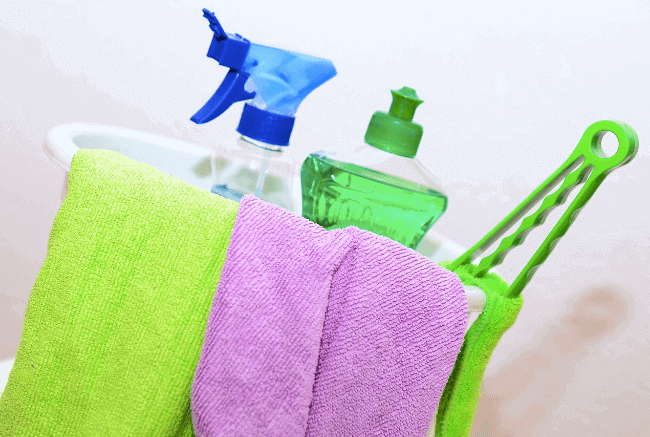An office should be cleaned daily to maintain hygiene, productivity and a professional image. Anything less risks both health and reputation. Cleanliness is an expectation tied directly to staff wellbeing, client confidence and even business continuity.
However, not every office will require the same level of attention. How often your office should be cleaned depends on several key factors such as the size of the space, the number of people using it, the nature of your business and whether you welcome visitors regularly.
Do Different Areas Of The Office Require Different Cleaning Frequencies?
Not all areas within an office need to be cleaned with the same frequency. High-touch and high-traffic areas require more regular cleaning than others. It is usually recommend that:
- Daily cleaning includes desks, kitchens, washrooms, reception areas, door handles, phones and shared equipment.
- Weekly cleaning includes internal windows, less-used meeting rooms, behind printers and under desks.
- Monthly cleaning covers deep cleaning of carpets, upholstery, vents and blinds.
- Quarterly to annual cleaning includes professional carpet shampooing, external windows and full deep cleans of underused areas.
For offices with high footfall, such as co-working spaces, customer-facing businesses or healthcare administration offices, daily cleaning is essential rather than optional.

What Are The Benefits Of A Clean Workplace?
Cleanliness is linked to more than just visual appeal. According to a 2022 report by the British Institute of Cleaning Science, 70% of office workers said they were more productive in a clean environment. When the workspace is clean and tidy, it fosters mental clarity, reduces stress and limits the spread of illness.
Regular cleaning also reduces absenteeism caused by preventable illnesses. Germs can linger on shared surfaces such as keyboards, kitchen counters and photocopier buttons. If one person is unwell, their germs can circulate through a poorly maintained office for days, leading to a ripple effect of sick leave.
How Much To Clean An Office
The amount of cleaning required refers both to frequency and depth. For example, a 10 person legal office that rarely sees visitors might only require a full clean each evening, with a deeper clean once a month.
A call centre operating 2 shifts with 40 employees might need cleaning services between shifts as well as a thorough weekly clean. A creative agency with frequent client visits may prefer a morning tidy-up and an evening clean, including internal windows and touchpoints such as door handles.
Office cleaning levels can be broadly broken down into three categories:
- Basic clean: Hoovering, emptying bins, wiping desks and sanitising washrooms.
- Standard clean: All of the above, plus kitchen cleaning, touchpoint sanitising and floor mopping.
- Deep clean: Full sanitisation, including carpets, upholstery, internal windows, air vents and occasionally walls.
Matching the level of cleaning to the intensity of use is essential. It is not about over-cleaning; it is about appropriate cleaning.
Should Cleaning Frequency Vary By Industry Or Office Type?
Different industries have different requirements.
- Medical or dental offices must follow regulatory guidance, which includes daily deep cleaning.
- Tech companies may require specialised cleaning for server rooms and equipment.
- Creative studios, with materials, props and frequent client visits, may need a customised approach to ensure cleanliness without disrupting creativity.
While it may be tempting to rely on minimal cleaning time each day, this is often insufficient unless your office space is exceptionally low-traffic.
What Are the Signs That An Office Is Not Being Cleaned Enough?
In many cases, the signs are hard to miss. Musty odours, rising rates of staff sickness, persistent coffee stains and noticeable dust even after a recent clean all suggest that the current cleaning routine is falling short.
Cluttered desks, sticky surfaces and overflowing bins are not just unpleasant to look at. They can send a subtle but damaging message that the workspace is not cared for, which in turn affects morale and professionalism.
Is It Better To Use In-House Or Outsourced Cleaning Services?
Some businesses choose to hire an in-house cleaner, while others prefer to work with professional cleaning services. Outsourced cleaning providers often bring better equipment, trained staff and a higher degree of accountability.
Familiarity can lead to oversight, so a fresh set of professional eyes can make a big difference. Many companies offer flexible cleaning contracts and support services, which can be more cost-effective than one-off arrangements.

Why Should Office Cleaning Be Treated As A Business Investment?
Too often, cleaning is treated as a behind-the-scenes task, something quietly handled once staff go home. However, a consistently clean office contributes directly to productivity, client trust and the health of your workforce.
Daily cleaning should be considered the minimum standard. From there, additional routines can be added depending on the nature of your business and the layout of your workspace.
The Bottom Line
Cleaning is not simply a maintenance issue, it is a reflection of your workplace culture and values. A well-maintained office signals professionalism, encourages wellbeing and supports overall performance.
Daily cleaning is the foundation, but your specific requirements may demand more frequent or more intensive attention. By investing in a proper cleaning routine tailored to your team and environment, you are not just preserving surfaces, you are protecting people, reputation and results.

